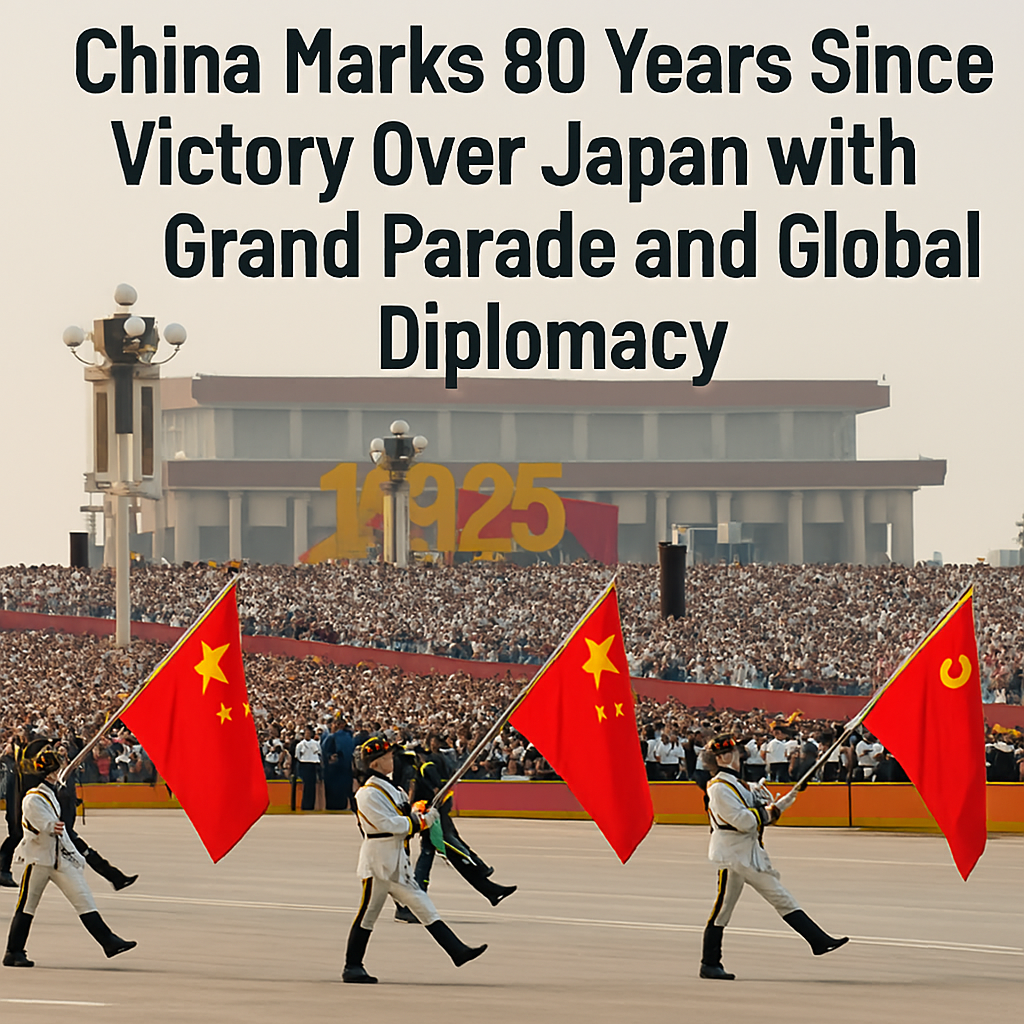Beijing, China staged one of its largest-ever military parades in Tiananmen Square today, commemorating the 80th anniversary of its victory in the War of Resistance Against Japanese Aggression (1937–1945). The event, rich in symbolism and geopolitical messaging, drew leaders from over 20 nations—including Russia’s Vladimir Putin and North Korea’s Kim Jong Un—but notably excluded representatives from Japan and most Western countries.
Chinese President Xi Jinping presided over the ceremony, delivering a speech that emphasized peace, sovereignty, and global cooperation. “Humanity once again faces a choice: peace or war, dialogue or confrontation,” Xi declared, framing the anniversary as both a historical tribute and a call for multipolar diplomacy.
The parade featured thousands of troops, cutting-edge weaponry, and aerial displays, showcasing China’s military modernization. Observers noted the presence of hypersonic missiles, drones, and electronic warfare systems, underscoring Beijing’s strategic ambitions.
Japan, meanwhile, had urged other nations to reconsider attending the event, citing concerns over anti-Japanese sentiment and historical revisionism. The Chinese Foreign Ministry responded by reaffirming the commemorative nature of the gathering and its message of peace.
Beyond the military spectacle, the event served as a platform for China to reinforce its leadership role among Belt and Road Initiative partners and Shanghai Cooperation Organization members. Analysts suggest the anniversary was as much about historical remembrance as it was about projecting China’s influence in a shifting global order.
TWW - The World Wide: Global News,Local Impact.

